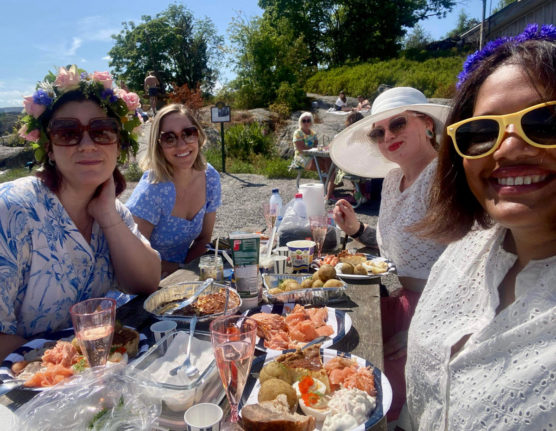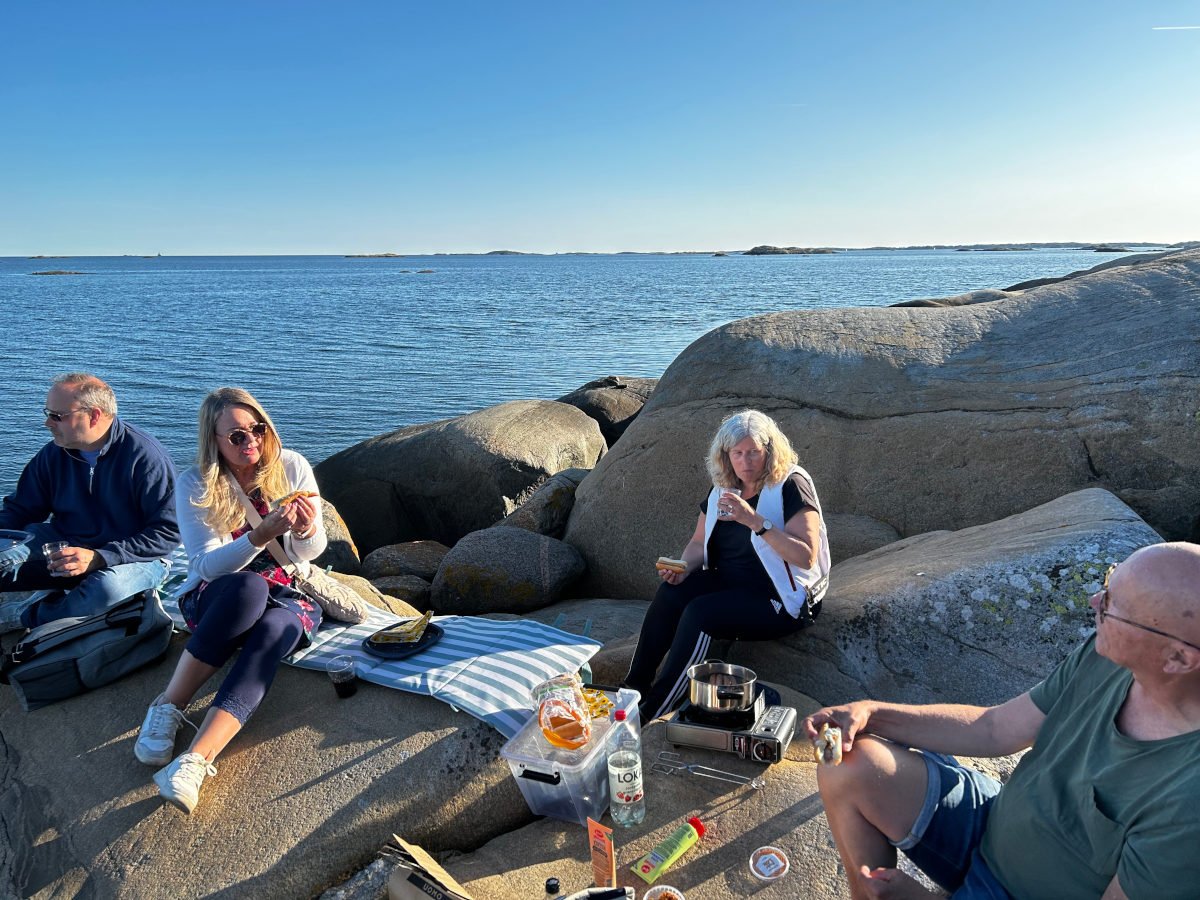Tårögd (teary eyed) is perhaps the adjective that best described Marcus and Martinus as the news of their Melodifestivalen win began to sink in on Saturday evening.
Whether the show’s real winner was in fact the inspired performance of boyband pastiche Björnzone is a matter for the debattartiklar (opinion pieces), but one thing is certain: there was a third winner in the Friends Arena this weekend: flerspråkighet.
Multilingualism, or perhaps more accurately, multilingual Sweden, was just as much a feature of the event as the sea of homemade banners, show host Carina’s oversize flower accessory or Loreen’s sterling efforts as she tried to receive her Hall of Fame award in her trademark taloned hands.
But not the polarising, political take on multilingualism that often hits the headlines, where focus is on a “can vs can’t” view of Swedish, or on generalised and all too often flawed assumptions about how long it should take to complete SFI (Swedish for Immigrants), or indeed what is expected of someone after they’re signed off as an SFI graduate.
No, that image of multilingualism was, happily, absent, and what we saw was the real, human side of life in many languages. The side that any multilingual person knows intimately and often unreflectingly, because it is just another aspect of day to day life.
I’m talking about the mixing of languages, mid-sentence or mid-song without breaking a step or batting an eyelid. About singing in a language that isn’t your first, or even your second, because you want to, and because you can. About dipping into English when the show’s international juries presented their votes, and hearing them add in some Swedish as a nod to the host country’s shared language.
The fact that winners Marcus and Martinus are Norwegian, and frequently do their interviews with the Swedish media in a fantastic mix of Norwegian and Swedish, is a reminder that the pan-Nordic linguistic connection and capacity for communication is alive and well, despite the prevalence of English.
And Ukrainian artist Maria Sur, whose use of Swedish alongside English has increased with every appearance, was a shining example of how perfection and fluency shouldn’t be the sole goal of learning and using the majority language of a country you live in.
The goal should be to use the language, to put yourself out there, and own your Swedish, whatever level you are at.
Only by practising Swedish in our meetings with other Swedish speakers can those of us who don’t have it as our first language develop our skills. As I’ve written here before, if we wait until we are fluent to speak Swedish, we will be silent forever.
READ ALSO:
Maria Sur has a lot she can be proud of in the way she has blossomed as a självklar (obvious) part of the Mello scene, and she can add linguistic role model to the list – using Swedish when she can, and drawing on her other linguistic resources when she needs to.
Multilingualism in Sweden doesn’t need to be a source of conflict, where panic about the quantity and quality of Swedish dominates.
If multilingual artists can swell with pride about their hopes of bringing the country’s first Swedish language song to Eurovision in almost 25 years (runners-up Medina had the only song in Swedish), in the same evening that artists with British, Ukrainian, and Finnish heritage (to name but a few) can raise the roof of a packed stadium in English, then meet the press in Swedish, in a contest ultimately won by two Nordic-language-championing pop powerhouses, then I think it’s safe to say that multilingualism isn’t a threat to Swedish.
Quite the opposite. If Saturday’s quintessential Swedish party is anything to go by, then Swedish is exactly what the Språklagen (The Language Act) says it is: the language we all share.
This article was written by Sarah Campbell, a PhD student and author of Swedish for Parents, the second edition of which is out on March 27th.
Would you like to submit an opinion piece about life in Sweden to The Local? Email our editorial team at [email protected] and we may consider it for publication.





 Please whitelist us to continue reading.
Please whitelist us to continue reading.
Member comments